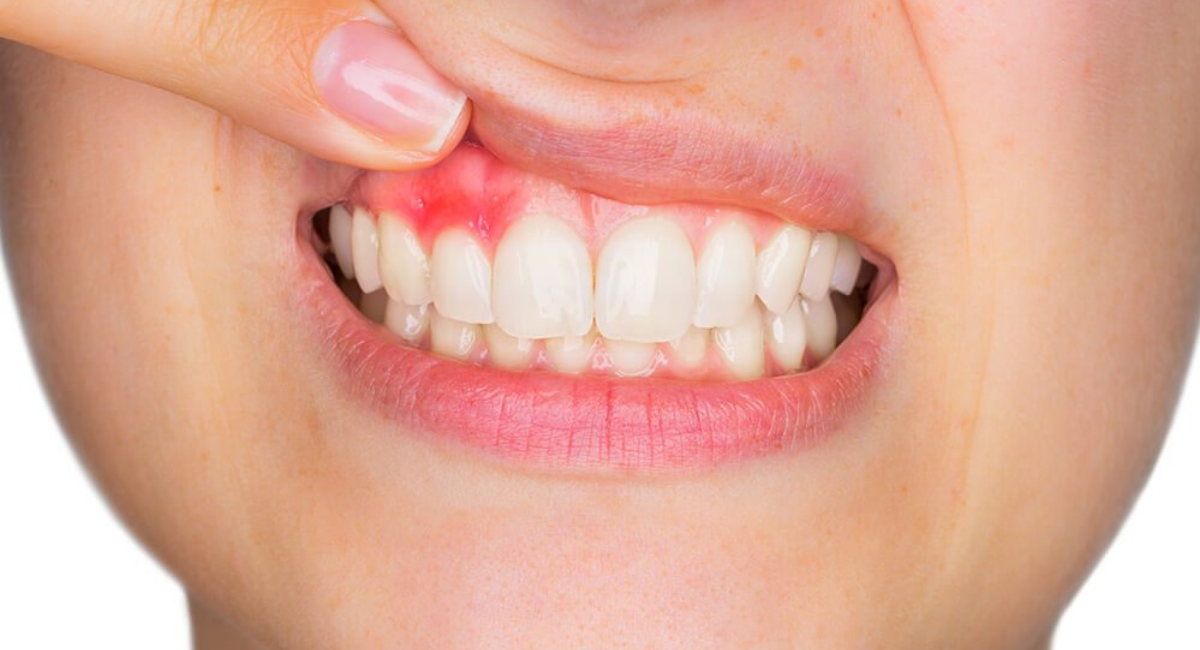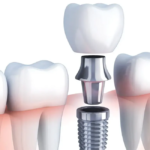Why Ignoring Swollen Gums and Gum Disease Can Be Dangerous?
Gum swelling is more than just a cosmetic issue. It is a sign that gum disease is near, and the longer you ignore it, the worse the situation can get.
Many of us may think that swollen gums are harmless and will go away on their own, but this couldn’t be further from the truth.
In fact, swollen gums can be a warning sign of something much more serious, such as gum disease, which can eventually lead to tooth loss and other health complications.
Understanding why your gums swell and the potential dangers of neglecting swollen gum tissue is essential for maintaining a healthy smile and preventing irreversible damage.
We’ll take a deep dive into the root causes of swollen gums and the risks that arise from ignoring the symptoms.
Why Are Your Gums Swelling?
Swollen gums can be caused by a variety of factors, and understanding these causes is the first step in determining the right course of action. Here are some common reasons why your gums may swell:
- Gum Disease (Gingivitis and Periodontitis): The most common cause of swollen gums is gum disease, which occurs due to plaque build-up on your teeth. When plaque hardens into tartar, it can irritate the gum tissue, leading to swelling, redness, and bleeding.
- Poor Oral Hygiene: Failing to brush or floss regularly allows plaque to build up, irritating the gums and causing them to swell.
- Hormonal Changes: Hormonal changes due to pregnancy, menstruation, or menopause can make gums more sensitive and prone to swelling.
- Medication Side Effects: Certain medications, especially those used to treat conditions like epilepsy or high blood pressure, can cause gum swelling as a side effect.
- Infections: Oral infections such as abscesses or even canker sores can lead to localized swelling.
- Allergies: Allergies can trigger a variety of oral symptoms, including gum swelling.
- Deficiency of Vitamins: Lack of essential nutrients, especially Vitamin C (leading to scurvy), can cause gum problems, including swelling.
The Dangers of Neglecting Swollen Gums
Ignoring swollen gums might seem like a minor issue, but it can have serious consequences. If left untreated, gum swelling can develop into more severe forms of gum disease and other health risks. Here are some dangers associated with neglecting swollen gums:
- Progression to Periodontitis
Swollen gums are often an early sign of gingivitis, the first stage of gum disease. If not addressed, gingivitis can progress to periodontitis, a more advanced stage of gum disease that can lead to the loss of tooth-supporting bone. - Tooth Loss
One of the most severe outcomes of untreated gum disease is tooth loss. As gum disease advances, it damages the tissues and bone that support your teeth, causing teeth to become loose or even fall out. - Gum Bleeding
Swollen gums often bleed, especially when brushing or flossing. While this may seem like a minor issue, bleeding gums are a clear sign that your gums are inflamed and that an infection may be present. Chronic bleeding can weaken your gum tissue, making them more vulnerable to infection and other complications. - Bad Breath (Halitosis)
Gum disease is one of the leading causes of bad breath. Swollen, infected gums can cause a persistent foul odour, which can affect your self-esteem and social interactions. - Increased Risk of Systemic Diseases
Studies have shown that untreated gum disease can increase the risk of serious systemic health issues, such as heart disease, stroke, diabetes, and respiratory infections. The bacteria from infected gums can enter the bloodstream and affect organs throughout your body. - Receding Gums
Swollen gums that are left untreated can start to recede. When the gum tissue pulls away from the teeth, it creates pockets that trap bacteria and plaque, leading to further infection and the potential loss of teeth.
Key Symptoms to Watch For
If you notice any of the following symptoms, it’s time to take action and see a dentist for a professional evaluation:
- Red, Swollen Gums
Gums should appear pink and firm. Red or swollen gums are a clear sign of inflammation. - Gum Bleeding
If your gums bleed when brushing or flossing, it may be a sign of gum disease or poor oral hygiene. - Bad Breath
Persistent bad breath or a metallic taste in the mouth could indicate gum infection. - Pain or Tenderness
Painful gums or discomfort when chewing are signs that the underlying issue may be more serious. - Loose Teeth
If you notice any teeth becoming loose or shifting, this may be a sign of advanced gum disease.
How to Treat and Prevent Swollen Gums?
The best way to treat swollen gums is by addressing the root cause. Whether it’s gum disease, poor hygiene, or a vitamin deficiency, treating the underlying condition is crucial for your oral health. Here are some steps you can take to relieve gum swelling and prevent further damage:
- Brush Twice a Day
Brush your teeth with fluoride toothpaste twice a day to remove plaque and prevent tartar build-up. Make sure to use a soft-bristled toothbrush to avoid irritating your gums. - Floss Daily
Flossing is essential for removing plaque between your teeth where your toothbrush can’t reach. This prevents plaque from building up and irritating your gums. - Regular Dental Checkups
Visit your dentist regularly for checkups and professional cleanings. These appointments help detect and treat issues like gum disease before they become more serious. - Use an Antibacterial Mouthwash
Antibacterial mouthwashes can help reduce plaque build-up and kill harmful bacteria in your mouth. - Address Nutrient Deficiencies
Ensure you are getting enough vitamin C and other essential nutrients that support gum health. A balanced diet rich in fruits, vegetables, and whole grains can help keep your gums healthy. - Quit Smoking
Smoking is a major risk factor for gum disease. If you smoke, quitting can significantly reduce your risk of developing gum problems.
When Should You See a Dentist?
If your gum swelling doesn’t go away after a few days of improved oral care, or if it worsens, it’s time to see a dentist. Your dentist will perform a thorough examination to determine the cause of the swelling and provide appropriate treatment. Early intervention can prevent the issue from progressing into something more severe, such as periodontitis or tooth loss.
At this point, seeking gum disease treatment is essential. If gum disease is the cause of your swollen gums, your dentist may recommend a deep cleaning procedure known as scaling and root planing. In some cases, surgical intervention may be required.
Swollen gums should never be ignored. They are often a sign of gum disease or another oral health problem that, if left untreated, can lead to serious consequences, including tooth loss and systemic health risks. By maintaining proper oral hygiene and seeking professional dental care when necessary, you can keep your gums healthy and avoid the dangers associated with swollen gum tissue.
If you’re experiencing swollen gums or any other dental issues, don’t wait to take action. Schedule an appointment with your trusted general dentist today to protect your smile and overall health.



